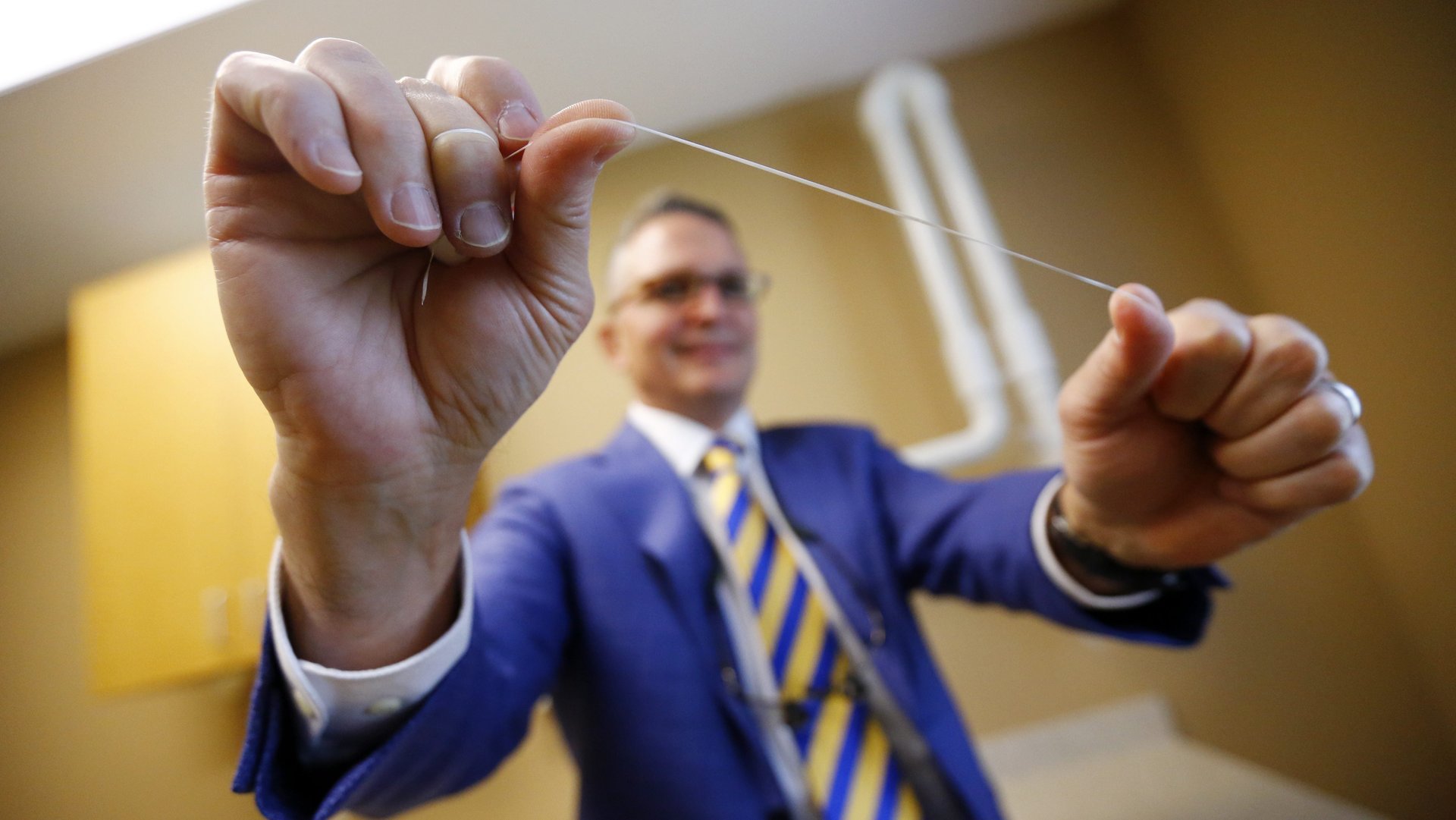Flossing doesn’t do what you think it does
After a long day of tonguing a jagged piece of kale stuck between your back two molars, there’s nothing more satisfying than getting home, jamming floss back there, and airlifting it out. But beyond that smug toss of nylon into the garbage, are there proven benefits of flossing?


After a long day of tonguing a jagged piece of kale stuck between your back two molars, there’s nothing more satisfying than getting home, jamming floss back there, and airlifting it out. But beyond that smug toss of nylon into the garbage, are there proven benefits of flossing?
An investigation published today (Aug. 2) by the Associated Press seeks to answer this question. After reviewing 25 studies from the past decade on whether flossing and brushing are better than just brushing alone, the answer is, by and large, mmmmph.
Says the report:
“The majority of available studies fail to demonstrate that flossing is generally effective in plaque removal,” said one review conducted last year. Another 2015 review cites “inconsistent/weak evidence” for flossing and a “lack of efficacy.”
The AP also points out that between the 2010 and 2015 editions of the Dietary Guidelines for Americans, issued every five years since 1980 by the US departments of agriculture and health and human services, the recommendation for flossing was removed. The 2010 version reads:
A combined approach of reducing the amount of time sugars and starches are in the mouth, drinking fluoridated water, and brushing and flossing teeth, is the most effective way to reduce dental caries.
The American Dental Association’s site states that flossing removes plaque, which can in turn help prevent gingivitis, an inflammation of the gums that can eventually cause you to lose your teeth.
A review study published in 2011 by Cochrane looked at 12 studies on flossing and found that there was some evidence to support this. It also said there was “weak, very unreliable evidence” from 10 of those studies that flossing could help reduce plaque after one or three months, and that none of the studies could prove flossing prevents tooth decay.